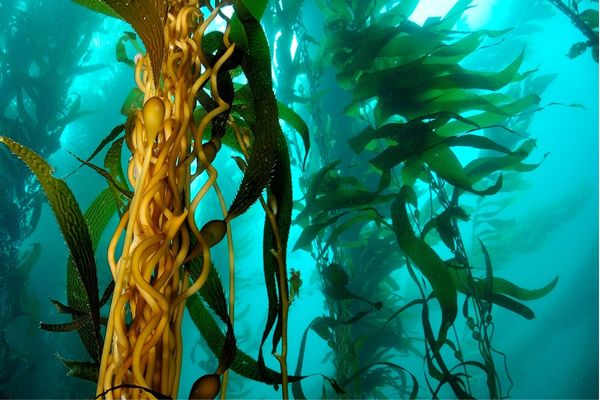
Deadline: 16-Dec-22
The Morris Animal Foundation is pleased to partner on the Wild Genomes – Kelp Forest Ecosystems Program: a new funding opportunity for conservationists interested in applying genetic insight to the protection and management of kelp ecosystems.
Wild Genomes is designed to accelerate the genomic sequencing and biobanking of species with a clear conservation need. Potential projects will be evaluated according to timeliness and urgency (e.g. at-risk species), the ecological role of the targeted species (e.g. keystone species), the species’ potential role in providing ecosystem services, and the potential impact of the project. Through this program, They aim to put the fundamental tools of genetic rescue into the hands of people who manage wildlife to achieve positive conservation outcomes.
Wild Genomes funding calls are topic-specific. From fish, to invertebrates, sea birds, marine mammals, and kelp, all species belonging to kelp ecosystems qualify. Proposals should describe a conservation-oriented effort that will benefit substantially from genomic sequencing and biobanking.
Key Personnel:
- Wild Genomes teams must include a field scientist(s) with knowledge of and access to tissue samples that have been, or can be, collected from wild populations of the target species.
- Wild Genomes teams may include an expert in molecular biology, especially those with experience in DNA and RNA library preparation from tissue samples of the target species.
- Wild Genomes teams may include an expert in genomics, especially those with experience in comparative genomics, for deriving relevant information from genomic resources provided by the project.
- Teams of field biologists that lack molecular or genomics expertise may apply to Revive & Restore for assistance in identifying suitable collaborators.
- Teams of molecular and/or genomics experts that lack field expertise or ability to access tissue samples from wild populations are not eligible. If such teams are interested in joining a Wild Genomes project, please inform Revive & Restore by email.
- Revive & Restore/Morris Animal Foundation will provide reference genome assembly services through their established commercial partners. However, proposing teams can apply to use alternative genome assembly services that meet the same quality standards at equal or lower cost.
Criteria
- Target Species and Conservation Need:
- Wild Genomes – Kelp Forest Ecosystems projects must aim to create genomic resources for kelp forest species of conservation relevance.
- The ideal target taxon will have ecological significance, strategic conservation value and/or evolutionary significance. Examples of poor candidates are species that can be recovered by traditional means without genetic rescue; that play little significant role in their habitat; or whose extinction would not be a major loss to evolutionary biodiversity.
- For the Kelp Forest Ecosystems topic, proposals should focus on collecting data that will help conservationists make a more informed decision(s) regarding the conservation, management and/or restoration of a relevant taxon. They are especially interested in proposals that address genomic insight into the health of kelp forest species, ecological imbalances such as urchin overgrazing, and climate resilience. Other topics of interest include, but are not limited to the impacts/mitigation of commercial harvesting, coastal development, and pollution.
- Proposals that focus on the genomics of pathogens or parasites, including fungi, protists, bacteria or viruses are specifically excluded from this program.
- Proposals that make use of captive populations of a target species will be considered, particularly where the results will be used to inform wild release. However, a preference will be given to proposals that address wild populations directly.
- Target species can be from any kelp forest, provided that high quality samples can be obtained for nucleic acid preparation and tissue biobanking.
- Target species can be from any area of the world; however, required import and export permits must be obtained by the research teams prior to the start of funding. For example, Revive & Restore/Morris Animal Foundation will not be able to support the acquisition of CITES permits, or compliance of Nagoya protocol procedures in either the country of origin or the United States. Similarly, researchers working with endangered species protected in the United States at the federal or state level must ensure proper permits are obtained for sample collections.
For more information, visit https://www.morrisanimalfoundation.org/apply